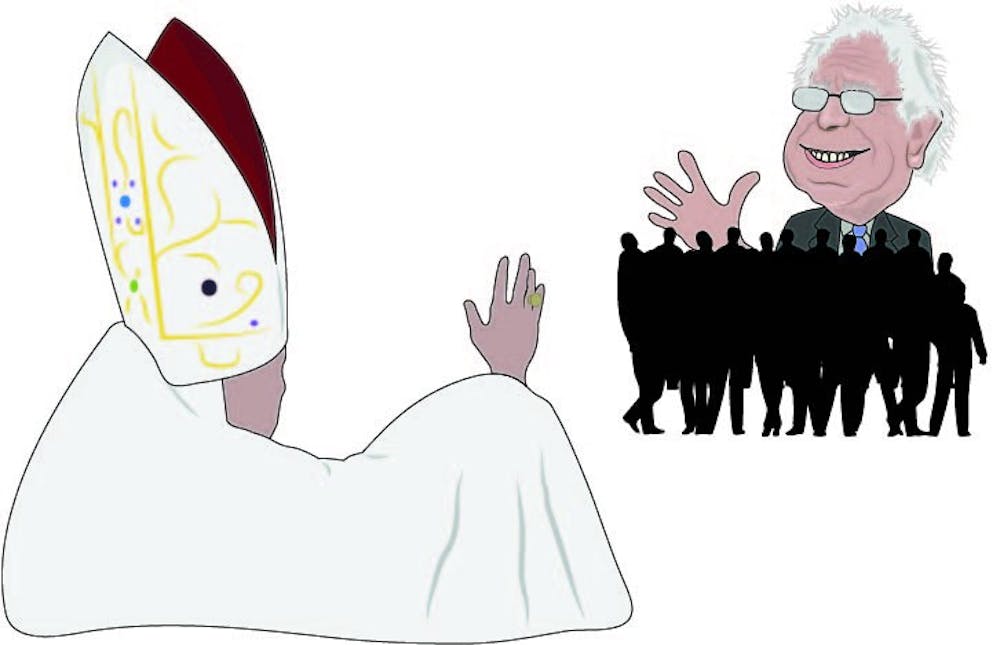Social media was abuzz last week over news that Bernie Sanders had been invited to the Vatican by Pope Francis.
Rumors began to circulate that Sanders wasn’t actually invited by the Pope, because it seemed a little too out of the blue.
Debate ensued, plagued with broad generalizations and sweeping characteristics about the candidates campaigning right now and their respective parties. People debated over how and why Sanders had actually been invited to the Vatican.
It turns out that Bishop Marcelo Sánchez Sorondo, the chancellor of the Pontifical Academy of Social Sciences, invited Sanders to address the Academy during its conference on social, economic and environmental issues.
The conference celebrates the 25th anniversary of an encyclical by Pope John Paul II about the pitfalls of the market economy and the globalization of the aforementioned issues.
The Pope himself didn’t wake up one morning and decide to invite Sanders to a meeting as some sort of subliminal endorsement of his candidacy.
However, a bishop who is quite close to the pope did make a specific decision about which candidate for the United States presidency to invite to speak on these issues.
And he chose Bernie Sanders.
This should be not overlooked or marginalized. It is an important recognition, despite having not been from the pope himself.
Sorondo chose Sanders for the same reason Goldman Sachs chose to pay Hillary Clinton hundreds of thousands of dollars to speak to their bank.
Both institutions like what each candidate has to say about their respective interests.
Though Pope Francis didn’t personally invite Sanders to a meeting, the fact he was asked to address this Academy at the Vatican speaks volumes to Sander’s platform. Clearly, they were interested in his message and his relationship with religion, particularly to Francis and Catholicism.
Sanders shares a majority of his platform with the pope.
For instance, Francis caused controversy last year when he harshly criticized unbridled capitalism, a view that makes up the cornerstone of Sanders’ campaign.
They both consider this unrestricted practice of capitalism a major contributor to poverty and the reallocation of wealth to the top one percent.
Francis once called for an ecological conversion in his encyclical on the environment.
Similarly, Sanders once declared that climate change is the nation’s biggest security threat.
The list continues, but it’s apparent that these two men share many of the same values and goals for solving world crises, and climate change.
In the face of criticism Sanders doesn’t focus enough on foreign policy, but his invitation to the Vatican suggests that he is heard and recognized by global figures.
In his address to the Academy, Sanders used international numbers and statistics to support his arguments, noting the wealthiest 85 people in the world own more wealth than the bottom 3.5 billion people.
Foreign diplomacy doesn’t always mean war, nuclear weapons and trade deals.
It involves international cooperation to combat climate change.
It can be a tool in combating poverty and income inequality.
The Vatican recognized this quality in Sanders’ message, recognized its similarity to that of Pope Francis and extended Sanders a significant and symbolic invitation that testifies to the international importance and relevance of his candidacy for president.




